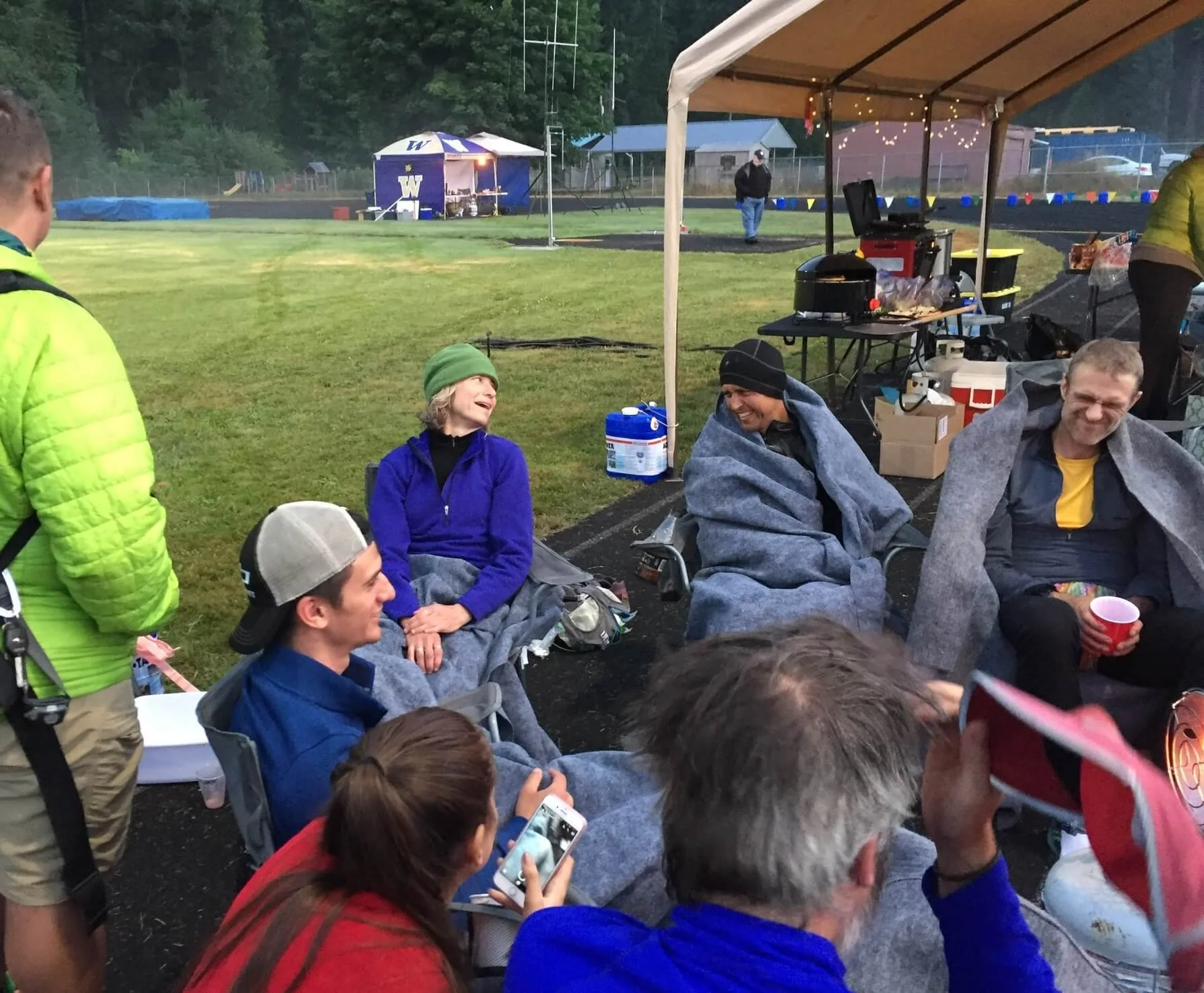You Don’t Have to “Beware the Chair”
“Beware the chair!”
It’s a tip you regularly hear about ultramarathons—and we laugh because we’ve all been there. You roll into an aid station late in the race, exhausted. Your muscles are stiff, your feet are blistered, you’re cold and dirty, and there it is: an empty chair by the warm fire, surrounded by a few motionless runners wrapped in blankets.
Sitting down would feel so good—like heaven. Just a short moment off your feet while you rummage through your drop bag. Just a quick rest to warm up. But you also know the risk. Once you lower yourself into that chair, you risk losing what little motivation you have left. The longer you sit, the less likely you are to get back up and go.
That’s the dangerous lure of the chair. It seems harmless, but it can end your race.
Maybe you sat in the chair during your last race and managed not to drop. It didn’t happen that time, but you still worry it might in the next race. Because the real issue isn’t the chair.
The real problem is that deep down, you don’t know who you are—someone who finishes no matter what or someone who quits when it gets hard. You’re waiting for the race to show you instead of deciding for yourself.
I know because I’ve been there. The first time I ran the Umstead 100, I dropped. I had plenty of time on the clock but convinced myself I was too tired. The second time, I swore I wouldn’t drop—of course not; it would be stupid to make the same mistake again. And then, in the last lap, I did. I’d finished tougher 100s, but the pattern of dropping was becoming my new normal. I was starting to believe I was mediocre—full of potential but never living up to it. It hurt because I knew I was stronger than that.
So I gave Umstead a third try, but this time, instead of promising myself I wouldn’t drop, I did something different. In the intervening year, I’d faced what was really going on and started my journey as a mindset coach. I was done quitting on myself.
This time, I chose to be someone who doesn’t drop. It wasn’t a desperate promise; it was a decision—a simple, steady decision that felt far more reliable than a promise. Dropping was simply no longer on the table—no matter how tired I felt, how far I still had to go, or what anyone else thought. I wasn’t interested in it. I didn’t fear the chair anymore because I knew who I was, and now, the chair was just a chair.
That’s the key. It’s not about resisting the chair, pushing away the temptation to drop, or hoping your crew can talk you into continuing. It’s about deciding ahead of time who you are. When you know you’re someone who finishes, the chair and its invitation lose their power. Once you make that internal decision, it’s unshaken by external circumstances—miles, blisters, pain, exhaustion, or chairs.
You can decide this right now. It doesn’t matter how many races you’ve dropped, struggled through, or barely finished. From this moment forward, you can decide: “I finish.” And even if the race is canceled partway through and you can’t finish that day, you know you’re someone who does. It’s about how you see yourself.
You already make countless everyday decisions about who you are—how you treat others, whether you pay your bills on time, if you’re a morning person or a night owl. This doesn’t have to be a big deal either. It’s just another decision about who you are—this time, as a runner.
If you’re tired of wondering who you’ll be when things get tough, it’s time to decide. You don’t need to wait and see—you have the power to choose right now. You control who you are—not the chair, not the fire, not the miles. You’re stronger than all of it.
When you decide, the chair loses its power. The urge to quit loses its grip. You no longer have to fear giving in because you no longer fear yourself. You know who you are, and that no matter what, you’ll keep going. It’s easier because you don't have to keep talking yourself out of dropping every time you race —one decision about who you are and it's done, for good. It’s simply who you are.
Right now, as you are, no matter how many DNFs you’ve had or why, you’re infinitely more powerful than a chair, exhaustion, or excuses.
That stronger, more resilient version of you is waiting—someone who finishes, no matter what.
It’s time to become that runner.

